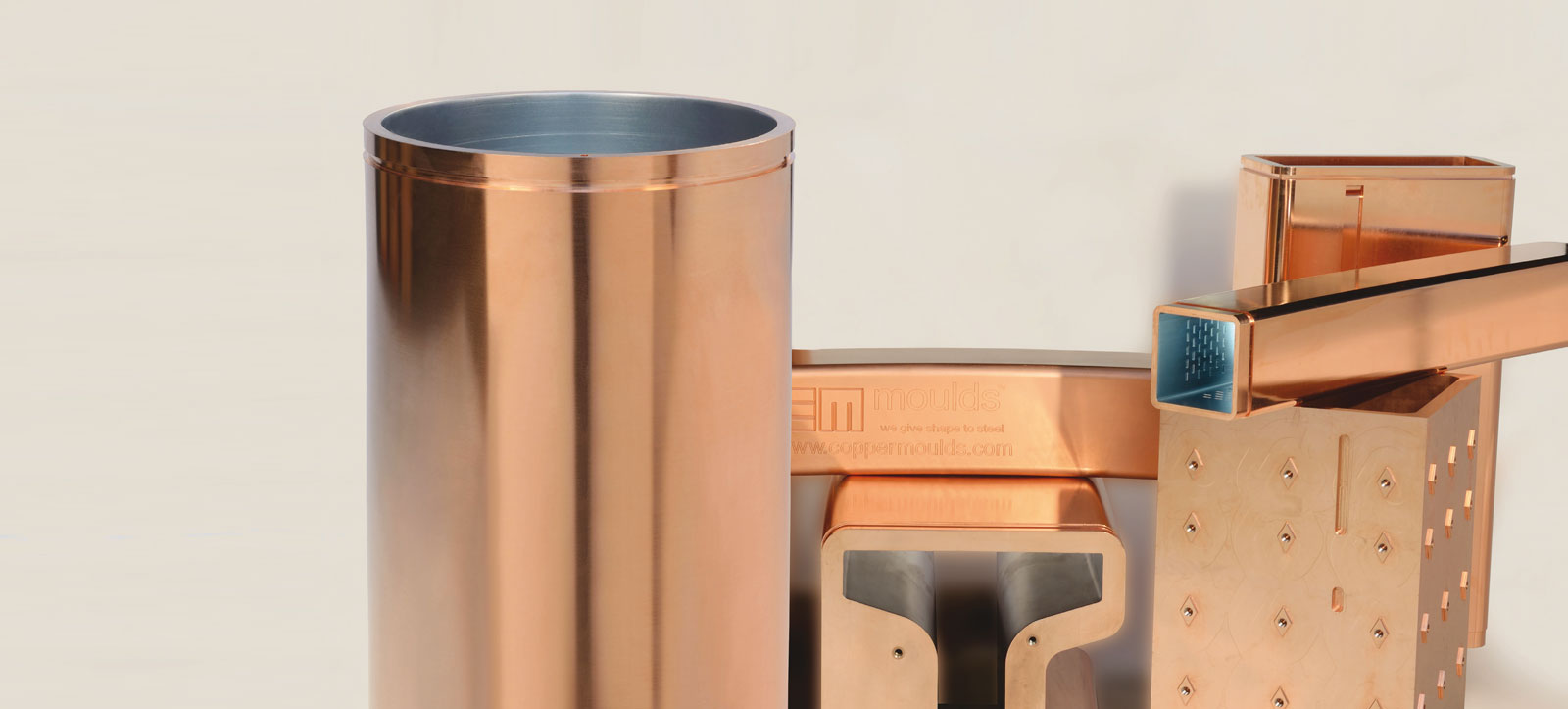MOULD MATERIALS
To ensure optimal performances, moulds must keep their original specifications at the operating temperatures as long as possible, and preserve the adequate heat transfer capacity.
Thermal stress – which arises mainly on the hot faces at the meniscus area – may result in a permanent deformation of the mould, thus cutting short its life. This phenomenon is related to both the temperature level inside the mould and the temperature differences respectively between the hot faces and the cold faces and between the meniscus area and the area immediately below it.
In order to optimize the mould performance according to the casting conditions we can choose from a wide range of materials as follows.
METAL MOULD 1 – CuDHP
Phosphorus Deoxidized Copper
DHP copper is still used to manufacture moulds for the continuous casting where the thermal flow is usually moderate and the thickness of the moulds is
not excessive.
METAL MOULD 2 – CuAg
Silver Bearing Copper
Adding 0.10% silver to the copper increases the recrystallization temperature by approximately 100°C, so that the temperature in the mould can reach 300°C even for long exposures without compromisingits stability. The thermal conductivity of this alloy is in the region of 10% higher compared to MM1 material.
METAL MOULD 3 – CuCrZr
Copper Chromium Zirconium
In order to improve the mechanical properties at high temperatures of copper alloys, metallurgical experts have turned to structurally hardened alloys. There are numerous alloys which can be obtained in saturated solution of several elements, but results are not always compatible with industrial realities, such as coping with pollution problems, high costs and excessive loss of thermal conductivity.
The MM3 alloy represents an excellent solution as this satisfies all the requirements for the application.
In fact, although with a comparable thermal conductivity to MM1, this alloy is sensibly harder and keeps its stability at temperatures exceeding 500°C.
METAL MOULD 8 – CuNiP
Copper Nickel Phosphorus
In an effort to minimize the problem of temperature variations within the mould, EM Moulds developed the MM8 alloy.
This has obvious advantages for solidification conditions without excessive thermal stress in the solidified skin, as well as in the mould itself.
The controlled thermal conductivity of this new alloy considerably diminishes the critical state of the cooling conditions, which are linked to three variables: thickness of the lubricating film, thermal flow and shrinkage of the solid skin. As a result, excessive thermal stress is avoided and problems of cracking are reduced.

